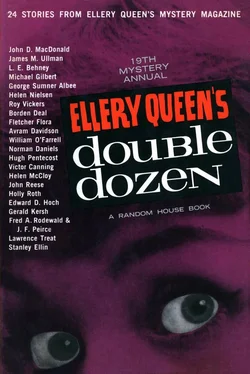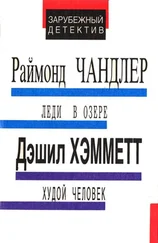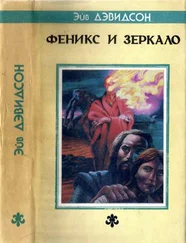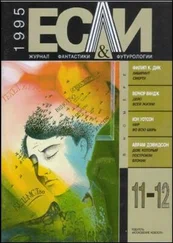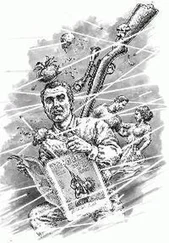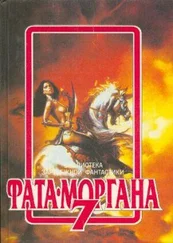“And your interest in this affair?”
“Purely unofficial. I don’t even know if I have the right to bother you with it at all.” Noah shrugged. “But when I thought of all the red tape to cut if I went to the military or consular authorities—”
The Commissioner made a gesture which dismissed as beneath contempt the clumsy workings of the military and consular authorities. “No, no, you did right to come here. We are partners in our profession, are we not, signore? We are of a brotherhood, you and I. So now if you give me all possible information about this Major von Grubbner, I will communicate with the German police. We shall soon learn if there is anything they can tell us about him.”
Soon meant days of waiting, and, Noah saw, they were bad days for Rosanna. Each one that passed left her more tense, more dependent on him for reassurance. How could anyone ever find this German, one man in millions, a man who might have his own reasons for not wanting to be found? And if by some miracle they could confront him, what would he have to say? Was it possible that he would say her father had been guilty?
“It is,” said Noah. He reached out and took her hand comfortingly. “You have to be prepared for that.”
“I will not be! No, I will not be,” she said fiercely. Then her assurance crumpled. “He would be lying, wouldn’t he? You know he would.” The passage left Noah shaken. Rosanna’s intensity, the way she had clutched his hand like a lost child — these left him wondering if he had not dangerously overreached himself in trying to exorcise the ghost of Ezechiele Coen. If he failed, it would leave things worse than ever. Worse for himself, too, because now he realized with delight and misery that he was falling hopelessly in love with the girl. And so much seemed to depend on clearing her father’s reputation. Could it be, as Rosanna felt, that Ezechiele Coen’s spirit really waited here on the banks of the Tiber to be set at rest? And what if there were no way of doing that?
When Signora Alfiara called him to the phone to take a message from the police, Noah picked up the phone almost prayerfully.
“Pronto,” he said, and Commissioner Ponziani said without preliminary, “Ah, Signor Freeman. This affair of Major von Grubbner becomes stranger and stranger. Will you meet with me in my office so that we may discuss it?”
At the office the Commissioner came directly to the point.
“The date of the unhappy event we are concerned with,” he said, “was the fifth of July in 1943. Is that correct?”
“It is,” said Noah.
“And here,” said the Commissioner, tapping a finger on the sheet of paper before him, “is the report of the German authorities on a Major Alois von Grubbner, attached to the Panzer division stationed in Rome at that time. According to the report he deserted the army, absconding with a large amount of military funds, on the sixth of July in 1943. No trace of him has been discovered since.”
The Commissioner leaned back in his chair and smiled at Noah. “Interesting, no? Very interesting. What do you make of it?”
“He didn’t desert,” said Noah. “He didn’t abscond. That was the money seen in Ezechiele Coen’s possession.”
“So I believe, too. I strongly suspect that this officer was murdered — assassinated may be a more judicious word, considering the circumstances — and the money taken from him.”
“But his body,” Noah said. “Wouldn’t the authorities have allowed for possible murder and made a search for it?”
“A search was made. But Major von Grubbner, it seems, had a somewhat” — the Commissioner twirled a finger in the air, seeking the right word — “a somewhat shady record in his civilian life. A little embezzling here, a little forgery there — enough to make his superiors quickly suspect his integrity when he disappeared. I imagine their search was a brief one. But I say that if they had been able to peer beneath the Tiber—”
“Is that where you think he ended up?”
“There, or beneath some cellar, or in a hole dug in a dark corner. Yes, I know what you are thinking, Signor Freeman. A man like this Doctor Ezechiele Coen hardly seems capable of assassination, robbery, the disposal of a body. Still, that is not much of an argument to present to people violently antagonistic to his memory. It is, at best, a supposition. Fevered emotions are not to be cooled by suppositions. I very much fear that your investigation has come to an abrupt and unhappy ending.”
Noah shook his head. “That attaché case and the money in it,” he said. “It was never found. I was told that when Ezechiele Coen was found shot by partisans and left lying in the Teatro Marcello, the case was nowhere to be seen. What happened to it?”
The Commissioner shrugged. “Removed by those who did the shooting, of course.”
“If it was there to be removed. But no one ever reported seeing it then or afterward. No one ever made a remark — even after the war when it would be safe to — that money intended to be used against the Resistance was used by it. But don’t you think that this is the sort of thing that would he a standing joke — a folk story — among these people?”
“Perhaps. Again it is no more than a supposition.”
“And since it’s all I have to go on, I’ll continue from there.”
“You are a stubborn man, Signor Freeman.” The Commissioner shook his head with grudging admiration. “Well, if you need further assistance, come to me directly. Very stubborn. I wish some of my associates had your persistence.”
When Rosanna had been told what occurred in the Commissioner’s office she was prepared that instant to make the story public.
“It is proof, isn’t it?” she demanded. “Whatever did happen, we know my father had no part in it. Isn’t that true?”
“You and I know. But remember one thing: your father was seen with that attach^ case. Until that can be explained, nothing else will stand as proof of his innocence.”
“He may have found the case. That’s possible, isn’t it?”
“Hardly possible,” Noah said. “And why would he be carrying it toward the Teatro Marcello? What is this Teatro Marcello anyhow?”
“Haven’t you seen it yet? It’s one of the ruins like the Colosseum, but smaller.”
“Can you take me there now?”
“Not now. I can’t leave the desk until Signore Alfiara returns. But it’s not far from here. A little distance past the synagogue on the Via del Portico. Look for number 39. You’ll find it easily.”
Outside the pensione Noah saw Giorgio Coen unloading a delivery of food from a truck. He was, at a guess, ten years older than his sister, a big, shambling man with good features that had gone slack with dissipation, and a perpetual stubble of beard on his jowls. Despite the flabby look of him, he hoisted a side of meat to his shoulder and bore it into the building with ease. In passing, he looked at Noah with a hang-dog, beaten expression, and Noah could feel for him. Rosanna had been cruelly wounded by the hatred vented against her father, but Giorgio had been destroyed by it. However this affair turned out, there was small hope of salvaging anything from those remains.
Noah walked past the synagogue, found the Via del Portico readily enough, and then before the building marked 39 he stood looking around in bewilderment. There was no vestige of any ruin resembling the Colosseum here — no ruin at all, in fact Number 39 itself was only an old apartment house, the kind of apartment house so familiar to run-down sections of Manhattan back home.
He studied the names under the doorbells outside as if expecting to find the answer to the mystery there, then peered into its tiled hallway. A buxom girl, a baby over her shoulder, came along the hallway, and Noah smiled at her.
Читать дальше
